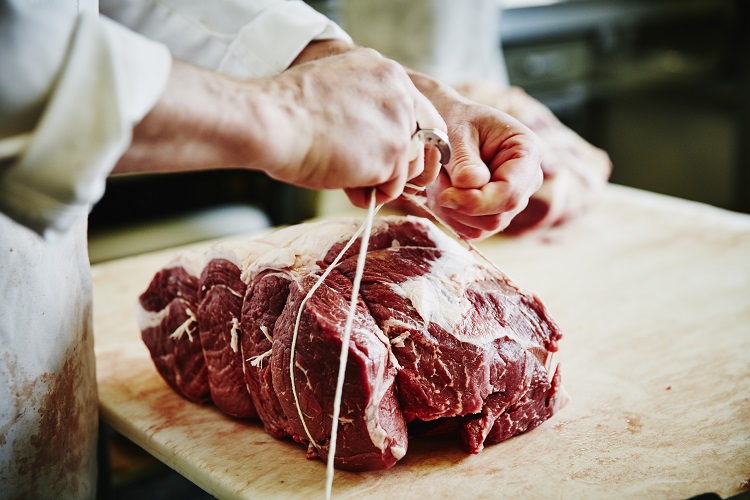How the Belgian meat industry can make progress in sustainability

At the roundtable, Michael Gore, managing director at FEBEV, Belgium’s national trade association for red meat, Joris Coenen, a manager at the Belgian Meat Office, and Hélène Simonin, director of sustainability and food policy at the European Livestock and Meat Trades Union, spoke about their perception of a dearth of knowledge of the food industry among the higher echelons of the European Commission, as well as the need for a more scientific approach to sustainability.
The data behind the dream
As part of its Farm to Fork Strategy, the EU aims to have 25% organic farmland by 2030. According to the EU, land farmed organically is 30% more biodiverse than land that isn’t, is beneficial to soil health, and even benefits animal welfare.
The speakers at the roundtable were, however, highly critical of the EU’s goal. The Belgian Meat office’s Coenen suggested that “the problem comes also from setting wrong goals. 25% of land should be organic just like that? It’s not realistic.”
“This is what we call an aspirational policy,” added the European Livestock and Meat Trades Union’s Simonin. “They have an idea of what they want, but they don’t have policy behind it.”
In contrast, they discussed FEBEV’s sustainability monitor, which presents data on the sustainability of farmers across the Belgian meat sector. The monitor, which became compulsory for FEBEV’s members in July, analyses the sustainability of participating farmers’ activities. Its farmers undertake yearly audits of the sustainability of their agricultural practices, and it is built around the UN’s sustainable development goals.
“The idea behind the sustainability monitor is that it includes the data,” said the Belgian Meat Office’s Coenen. The monitor “shows exactly the reality of what the sector needs to do,” added Simonin.
The speakers criticised the European Commission for a lack of understanding of how the food industry works.
Politicians “don’t have the understanding of the agronomic dynamics” to set strong goals, suggested Coenen. Setting short notice goals, such as being 25% organic by 2030, is in his opinion detrimental to the overall goal of being sustainable in the first place, as it is unrealistic. In contrast, the sustainability monitor includes the input of those within the industry, as well as farmers themselves.
“So I think we can do a lot of things within the industry,” added FEBEV’s Gore. “We can bring in information, we can explain that sometimes there an unwillingness to listen to the data. That’s for me one of the major issues that we could face; it’s not about not having the right data, it’s about not having the possibility to speak out, it’s just as much about people not wanting to listen to what we have to tell.”
Food security and nutritional security
Food security, especially in light of high rates of inflation and the war in Ukraine, was discussed in depth.
One of the key distinctions, believed Simonin, is that between food security and nutrition security.
“Food security is about the right amount of calories,” she pointed out, “What we want is to nourish people well, as they need a lot of nutrients. We look at micronutrients, not only the pure calories. We really look at nutrition security.”
She suggested that the European Commission must keep the ‘complexity’ of the situation in mind when drafting sustainability policies, ensuring that populations still received the right nutrition even when attempting to enhance sustainability.
“So this complexity needs to be part of the question,” she added, “and the commission has to be very clear and say ‘okay, the green deal is about improving in different dimensions’, knowing that there will be trade-offs.”
link







